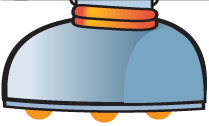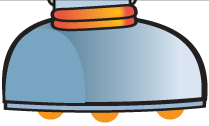What You Should Know about Your Child’s Dental Health
Although your child probably wasn’t born with teeth, his teeth actually began forming before he was even born. The baby teeth can appear as early as four months of age. By the time your child is three years old, he will probably have all 20 of his baby teeth. The speed at which those teeth come in and the order in which they appear will vary from one child to another.
Your child will start losing his baby teeth and getting his permanent, adult teeth around age six. The process of the adult teeth coming in can continue all the way until age 21. In order to take good care of those teeth and develop healthy dental habits, take these steps:
- Limit your child’s intake of sugar. Sugary drinks like soda, flavored milk, and juice are particularly detrimental to dental health.
- Be sure that your child gets adequate fluoride. Fluoride serves an important role in strengthening the tooth enamel and preventing decay. In many areas, the supply of drinking water is fluoridated. Talk to your dentist about whether your child should receive a fluoride treatment in the dentist’s office or take fluoride supplement tablets at home.
- Have dental sealants applied to your child’s teeth. Sealants are a type of plastic that is applied to the teeth and bonded to them using a special wand. They provide an additional measure of protection against cavities.
- Get your child in the habit of brushing and flossing regularly. Make it part of your routine every morning and evening.
Oral Health Challenges
- Baby bottle tooth decay – It is not unusual for babies to develop tooth decay as a result of drinking from a bottle. The milk coats the teeth and sits in the mouth, encouraging the growth of bacteria. You can avoid this by wiping the baby’s gums with a soft, wet washcloth after feedings. When your baby’s teeth begin to come in, you should brush them with a soft toothbrush and fluoride-free toothpaste. Also, remember to never put a baby to bed with a bottle in his mouth. Finish feeding the baby, and then put the bottle away before putting him to bed. If he must take a bottle to bed, fill it only with water instead of milk or juice.
- Pacifiers and thumb sucking – These habits are common and important amongst young children. Most kids give these habits up on their own by two or three years of age. It is usually not considered to be a problem until after four years of age. If you have concerns about your child’s thumb sucking or pacifier use, talk to your pediatric dentist.
- Oral injuries – Oral injuries can occur when kids are playing sports. Wearing a mouth guard can help prevent accidents.
- Excessive consumption of sweets – Encourage your child to choose healthy foods and drinks, and model that behavior. Offer water instead of sugary drinks like juice, soda, or sports drinks. Provide healthy snack options, including fruit, veggies, yogurt, and whole grains.
- Braces – Make sure that your teen brushes well around the braces and use a floss threader.
If your child is due to see the dentist, contact Tustin Pediatric Dentistry. Our office specializes in caring for kids from infancy through the teen years. Give us a call to schedule an appointment for an exam and cleaning today.










